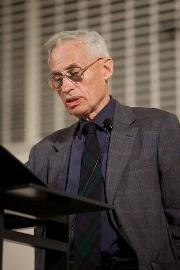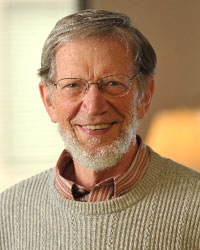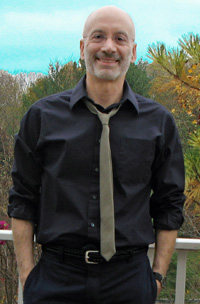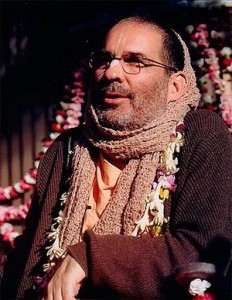I had the wonderful experience of studying philosophy of religion at the University of Oxford under the supervision of Richard Swinburne. While I was already acquainted with contemporary philosophy of religion as the result of an outstanding undergraduate program in philosophy at Santa Clara University, Swinburne helped me see the depth and complexity of arguments in philosophy of religion, and—most importantly—he helped me cultivate analytical rigor in my own thinking and writing. His work in natural theology inspired me to deepen my understanding of epistemology, inductive logic, and the philosophy of science, as well as to develop a research program in natural theology and the epistemology of religious belief that eventually resulted in the publication of my first book, the Reformed Objection to Natural Theology. His books the Existence of God, the Coherence of Theism, and the Christian God are in my view some of the most important books that have been published in the philosophy of religion during the past hundred years. He challenged and sharpened my thinking but with generosity and patience. I have greatly profited from our continued interaction over the years, and I continue to experience profound gratitude for his mentorship and role in my flourishing as a philosopher of religion.
I first met Alvin Plantinga while I was an undergraduate student at Santa Clara University working on my honor’s undergraduate thesis in the epistemology of religious belief, a thesis in which I defended the view that belief in God could be rational in the absence of evidence. Alvin Plantinga’s work, together with the work of William Alston and Nicholas Wolterstoff, broke the shell that had enclosed my understanding of epistemology. They all introduced me to philosophy done with a degree of clarity and rigor that went considerably beyond my earlier pre-college Christian philosophical influences. I read and reread William Alston’s Epistemic Justification along with Plantinga’s lengthy article “Reason and Belief in God,” which was featured in Faith and Rationality, edited by Plantinga and Wolterstorff. I worked with Plantinga during the final year of the writing of my Oxford D.Phil. thesis, while a visiting fellow in the Center for Philosophy of Religion at the University of Notre Dame. He was an amazing and humorous interlocutor who helped me refine my philosophical thinking and the arguments presented in my D.Phil. thesis and many of my subsequent publications. I enjoyed penetrating conversation and correspondence with him while he was writing the final volume of his Warrant series, Warranted Christian Belief. I have greatly benefitted from over a decade of correspondence with Plantinga on various topics in the philosophy of religion. I consider him one of the most fascinating and impressive Christian philosophers of the 20th -21st century.
I started corresponding with Stephen Braude in 2006, shortly after embarking upon a more systematic exploration of questions surrounding postmortem survival and the interface between philosophy and parapsychology. I was already acquainted with the contributions of C.D. Broad and H.H. Price in this area, but I was delighted to find a contemporary philosopher who took paranormal phenomena seriously and meticulously engaged the postmortem survival question with amazing clarity, logical rigor, and depth and breadth of knowledge of philosophy of mind, epistemology, psychology, and parapsychology. Braude’s Limits of Influence: Psychokinesis and the Philosophy of Science and Immortal Remains: the Evidence for Life after Death are brilliant and inspiring contributions to the philosophical and empirically informed exploration of psychic functioning and the postmortem survival of human consciousness. In the course of my regular discussions with Braude over the past six years I have learned much about psychology, the careful analysis of ostensibly paranormal phenomena, and the range of relevant issues in sorting through their bearing on arguments for postmortem survival. I have tremendous gratitude for his regular reading (and re-reading) of my writing in this area, as well as his generous and insightful comments on my work.
While in route to India I came upon the teachings of Swami Tripurari. The journey to India was, of course, no physical journey but the philosophical and spiritual movement in consciousness towards Vedanta philosophy and the bhakti tradition of Gaudiya Vaishanvism. After moving in the direction of eastern philosophy and religion by teaching Vedanta philosophy and the Bhagavad Gita over the course of a few years, a former student introduced me to work of Tripurari. I read his Rasa: Love Relationships in Transcendence, Aesthetic Vedanta: the Sacred Path of Passionate Love, and his translation and commentary on the Bhagavad Gita, Bhagavad Gita: Its Feeling and Philosophy. Tripurari’s talks on the Bhagavad Gita and his writings on the Gaudiya tradition impressed me with their clarity, systematic nature, and philosophical depth. Most importantly, Tripurari spoke in an intelligible and inspiring way of the character of genuine spiritual practice, its importance for cultivating bhakti (devotion to God), and how bhakti is a source of knowledge of God that transcends the intellect. Through Tripurari’s influence and guidance I have come to a deeper knowledge of Gaudiya Vaishnavism, but most importantly to a fresh and deep first-hand knowledge of the experience of God through Krishna consciousness.




 Follow
Follow